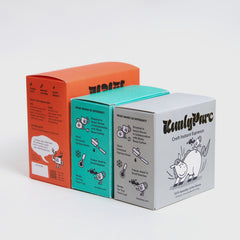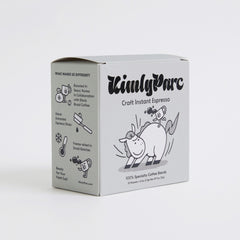What is a kimbap?

Kimbap is a Korean compound word for ‘kim’ (seaweed) plus the ‘bap’ (rice). It is a traditional Korean dish made of basic yet colorful ingredients including rice, vegetables, fish, and meat rolled in a seaweed sheet.
At first glance, they may seem exactly the same due to its appearance: rice being wrapped with seaweed sheets. However, these Korean seaweed-wrapped rice rolls are nothing like the Japanese futomaki (fat sushi roll).

The key difference between the two includes the treatment of rice. While Korean kimbap’s rice is seasoned using sesame oil, rice used in Japanese futomaki is prepared with vinegar just like other sushi rice. Another main difference between the two is the diversity of the fillings. Although it is true that the fillings can differ for each and every single cook, most kimbap incorporates beef bulgogi, pressed fish cake, or tuna mayonnaise while futomaki in general includes raw seafood such as salmon, unagi (freshwater eel), or anago (saltwater eel).
The new K-food sensation: Trader Joe’s Frozen Kimbap

In early august, Trader Joe’s introduced their newest frozen kimbap product to the U.S market. Trader Joe’s normally supply their own brand product from a third party and slap on their very own TJ label. Trader Joe’s kimbap costs $3.99 per roll and is supplied by Allgot, a South Korean kimbap company founded in 2020. Frozen kimbap was something new even for Koreans or Korean Americans who were already familiar with the Korean roll. This method of freezing and heating kimbap up would usually ruin the texture of seaweed as it would get soggy and shrivel up due to the moisture.
A video of a Korean mother and daughter living in the States reviewing Trader Joe’s frozen kimbap went viral on TikTok with an accumulated view of 13.4 million views up until now. In the clip, Sarah Ahn brings home and shares a roll of kimbap with her mother Nam Soon. Her mother, being a former restaurant owner, comments on the premade kimbap being “not bad” at all and that it was actually better than the ones from the local Korean grocery markets.
One of her other most viral videos is about her getting teased for bringing a kimbap for lunch when she was younger. Sarah shared with NBC that “people are (now) obsessed with Korean music, Korean culture, Korean moms, everything” and that this kimbap sensation “says a lot about how far (Koreans) have come to have our culture be seen by others and accepted and consumed.” Lastly, she added that “social media has definitely magnified the ability for different cultures and cuisines to be shared across the world.” It is arguable that the K-culture is taking the world by storm.
What they sell at Trader Joe’s may not be the typical kimbap you would find in Korea. What they have is a vegan kimbap that contains seaweed, seasoned rice,braised tofu, burdock root, carrot, yellow pickled radish, and spinach. According to their website, their kimbap takes a “veggie-forward approach.” This is extremely appealing to vegan or vegetarians as kimbap sold in Korea usually include other protein based ingredients. While Allgot provides more than 10 variations of kimbap in Korea, this veggie option is only available in the United States due to U.S authorities imposing demanding standards on meat-based imports. Thanks to this trend of a healthy Korean meal alternative, Allgot’s initial batch of 250 tons of kimbap is sold out and they are preparing for a second batch of 500 tons.
When do you eat Kimbap?
Kimbap is one of Korea's most beloved meals and is often part of a dosirak (packed meal) for a picnic or other outdoor event due to its convenience. Many Koreans prepare kimbap and instant cup noodles with a thermos of Korean instant coffee (mixed coffee) for a family picnic or outdoor activities. We highly recommend you to try out our vegan coffee alongside the vegan kimbap. What a combo!







